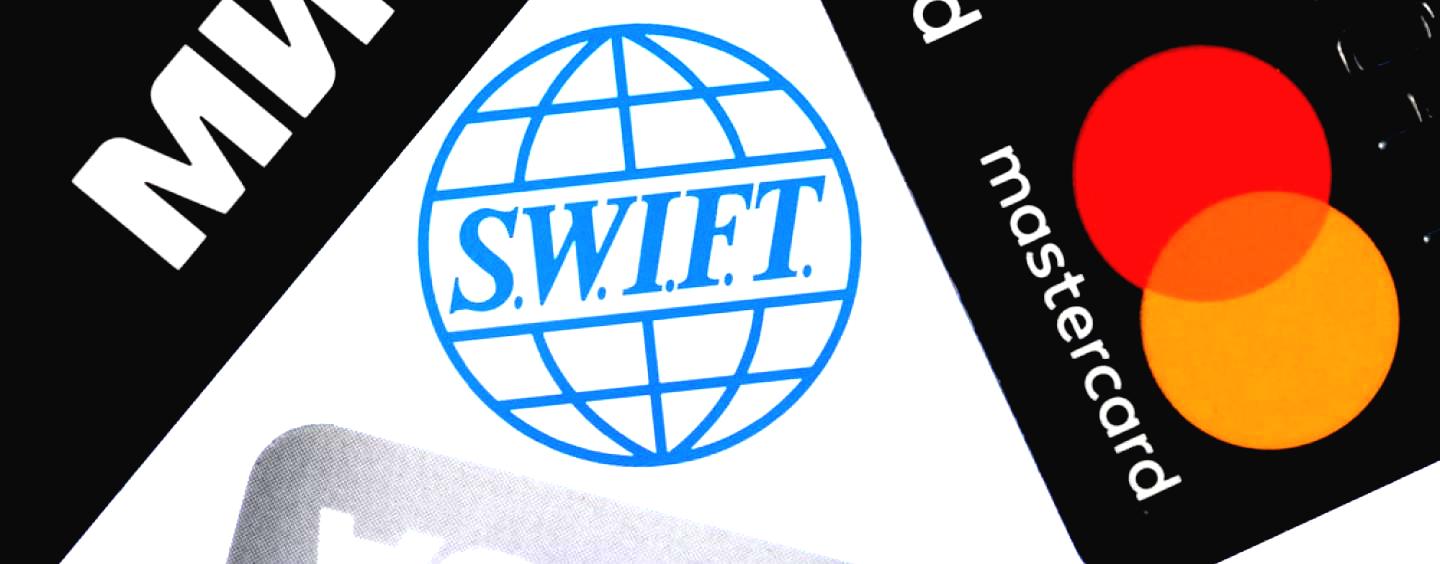CAN BANKS CARRY OUT INTERNATIONAL TRANSACTIONS WITHOUT SWIFT?
SWIFT is a messaging service that substantially facilitates information exchange between banks and other financial institutions. Transactions transmitted via SWIFT are settled by payment systems that facilitate much larger volumes than SWIFT itself. For example, the U.S. Clearing House Interbank Payments System (CHIPS) is owned by large U.S., European, and Japanese banks and facilitates most large-value, cross-border, dollar-denominated payments. This system has internal messaging systems to facilitate payments without relying on SWIFT, but a large share of high-value, cross-border payments involve a SWIFT message.
Who owns and controls SWIFT?
- SWIFT was created by American and European banks, which did not want a single institution developing their own system and having a monopoly.
- SWIFT helps make secure international trade possible for its members and is not supposed to take sides in disputes.
Blocking Sanctions and Delisting from SWIFT
- These measures impose a prohibition on the provision of financial messaging services to delisted banks that are directly or indirectly owned (50% or more) by a delisted bank.
- Banks could carry out international transactions without SWIFT, but it is expensive, complex and requires mutual trust between financial institutions. It brings payments back to the times when telephone and fax were used to confirm each transaction.
Banning Banks from SWIFT
- The ban prevents banks from making or receiving international payments using SWIFT. This has negative consequences for the targeting economy.
- Banks can neither get foreign currency (as a transfer of foreign currency between two banks is generally processed as a transfer abroad involving a foreign intermediary bank) nor transfer assets abroad.
- Block states’ foreign exchange reserves and prevents key banks from conducting global fast and efficient financial transactions.
Sanctions against the National Central Banks and assets freeze: Russian case
- As the EU has prohibited all transactions with the National Central Bank of Russia related to the management of the Russian Central Bank’s reserves and asset freeze, it can no longer access the assets it has stored in central banks and private institutions in the EU.
- Russia cannot use this cushion of foreign assets to provide funds to its banks and thus limit the effects of other sanctions.
- The EU has also prohibited the sale, supply, transfer and export of euro-denominated banknotes to Russia. The aim is to limit access to cash in the euro by individuals or legal persons in Russia with a view to preventing the circumvention of sanctions.
- Remove Russia’s access to capital markets, increase borrowing costs for the sanctioned Russian-owned financial institutions and progressively erode the country’s industrial base.
International banks and the direct and indirect effects of financial sanctions
- Direct effect: European banks’ equity prices dropped (compared to US banks) and the cost of equity increased. However, credit default swap spreads experienced a more modest decrease, suggesting investors’ trust in banks’ stability.
- Indirect effects: one of the major indirect effects is the impact on deposit insurance schemes, both in terms of higher bank payments and payouts to customers.
How is this latest ban impacting day-to-day operations within international banks?
- Financial institutions across the globe will be carefully assessing their exposure to Russia.
- Operations and compliance teams will be applying a major focus on accounts and relationships that may have connections to Russian entities and individuals, including politically exposed persons (PEPs).
- Financial institutions will quickly identify which clients (many of which have complex ownership and control structures) have beneficial owners with roots in Russia or exposure to Russian PEPs.
- Automating client due diligence and client behavioral analysis to ensure real-time identification of emerging risks.

